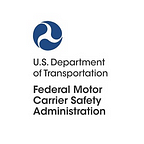FMCSA Works with Partners to Tackle Regional Roadway Safety Challenges through Agency’s Savannah Community Coalition: A Safety-Focused Engagement Model
Last year, the state of Georgia had a 21 percent decrease in fatal CMV-involved crashes. While that was a significant improvement, the state is still in the top five states with the most crashes involving large trucks and buses. The area surrounding Savannah, Georgia, with the fourth-busiest container port in the United States and the critical intersections of highways I-95 and I-16, has been a contributing factor. In light of these facts, FMCSA Southern Service Center Regional Field Administrator Dr. Georgia Steele tasked the FMCSA division offices across the 11 states in her jurisdiction with creating a multi-year strategic plan for their respective divisions that support the collective goal of crash reduction in every state. These plans include forming safety coalitions aimed at increasing safe driving practices and further reducing crash rates. Given Savannah’s unique geographic position and transportation environment, FMCSA Georgia Division Administrator Danny McPeters recognized the need for a comprehensive coalition involving diverse transportation safety partners to address the area’s high crash rate.
“In 2016, there were two major, fatal crashes on I-16 from the Port of Savannah,” McPeters said. “And we know that about 80 percent of crashes within 60 miles of Savannah are intermodal, meaning they are commercial motor vehicles colliding with passenger vehicles. That means we have to work with public-facing transportation safety organizations, like the Georgia Department of Transportation and Georgia Department of Driver Services, to figure out how to educate drivers to operate safely.”
In response, McPeters and Safety Investigator Kevin Elrod developed the Savannah Community Coalition — a biannual conference uniting FMCSA, state and local governments, CDL-granting institutions, non-profit organizations, and trucking industry stakeholders. The goal: to share information on regulatory updates and raise awareness about current and future roadway safety challenges and best practices, all tailored to the area’s high-crash corridors.
Community Engagement and Collaboration
Held in early April, this year’s conference included the Georgia Department of Transportation, Georgia Ports Authority, Georgia Department of Driver Services, and Georgia Department of Economic Development; Motor Carrier Safety Assistance Program (MCSAP) partners, the Georgia Governor’s Office of Highway Safety and Georgia Motor Carrier Compliance; and stakeholders, including the Savannah chapter of the Georgia Motor Trucking Association and out of state carriers Walmart and J.B. Hunt.
The Savannah Community Coalition addresses the Southern Service Center’s regional priorities by:
- Fostering collaboration with industry stakeholders, law enforcement agencies, and community organizations to create, spread, and strengthen safety coalitions.
- Facilitating information-sharing events and educational initiatives to promote a culture of safety within the regulated community and among community stakeholders.
- Measuring and improving the effectiveness of safety coalitions through performance metrics and feedback mechanisms.
Highlighting the importance of human trafficking prevention, the conference invited a human trafficking survivor to speak. Additionally, the Lutzie43 Foundation presented a Safe Driving Summit focusing on youth driver safety issues, such as distracted and impaired driving, including a reenactment of an emergency room scenario following a crash. “We want to let stakeholders know where the crashes are happening, what kinds of violations are the most common, and the reasons why we are stopping CMV drivers so that they can understand what FMCSA is looking for and the carriers can train their drivers to change their behavior,” said Elrod. “In addition, they can keep an eye on economic development and hire more people and arrange for more resources in advance of coming changes.”
Lowcountry Economic Development
Looking ahead, Georgia and South Carolina’s partnership in the Jasper Ocean Terminal Joint Venture aims to develop a new container port along the Savannah River, projected to become the country’s largest port by 2035. The increased economic development as well as job development and increased production from the Hyundai plant near Savannah, will lead to infrastructure development and population growth that will affect traffic volume and patterns.
“We are trying to get out ahead of these major changes by informing our partners about what to look out for in the coming years,” says McPeters. For example, the Georgia Department of Transportation discussed with attendees current and future construction, alternate routes around the construction zones, and estimated completion dates.
A Culture of Excellence
The Savannah Community Coalition, now a biannual event with a second session typically held in November, exemplifies FMCSA’s mission and vision. This initiative may serve as a model for future efforts in the Atlanta metropolitan area and other states within the Southern Service Center, including Florida and the Appalachian regional port area known as “Freight Alley,” spanning Tennessee, South Carolina, North Carolina, Georgia and Alabama.
In every endeavor, the Georgia Division upholds its core values of integrity, collaboration, innovation, and excellence, striving to prevent crashes, injuries, and fatalities involving large trucks and buses. Through collaboration, education, research, technology, and compliance, the Southern region remains committed to saving lives and reducing crashes, ensuring that every effort aligns with the agency’s mission and core values.
Referring to the U.S. Department of Transportation’s National Road Safety Strategy goal of zero roadway fatalities, Dr. Steele said, “My overarching goal is to initiate a cultural shift to excellence and thinking about how we can build on the successes of the Savannah Community Coalition and partner with others to get to zero deaths on the road.”
